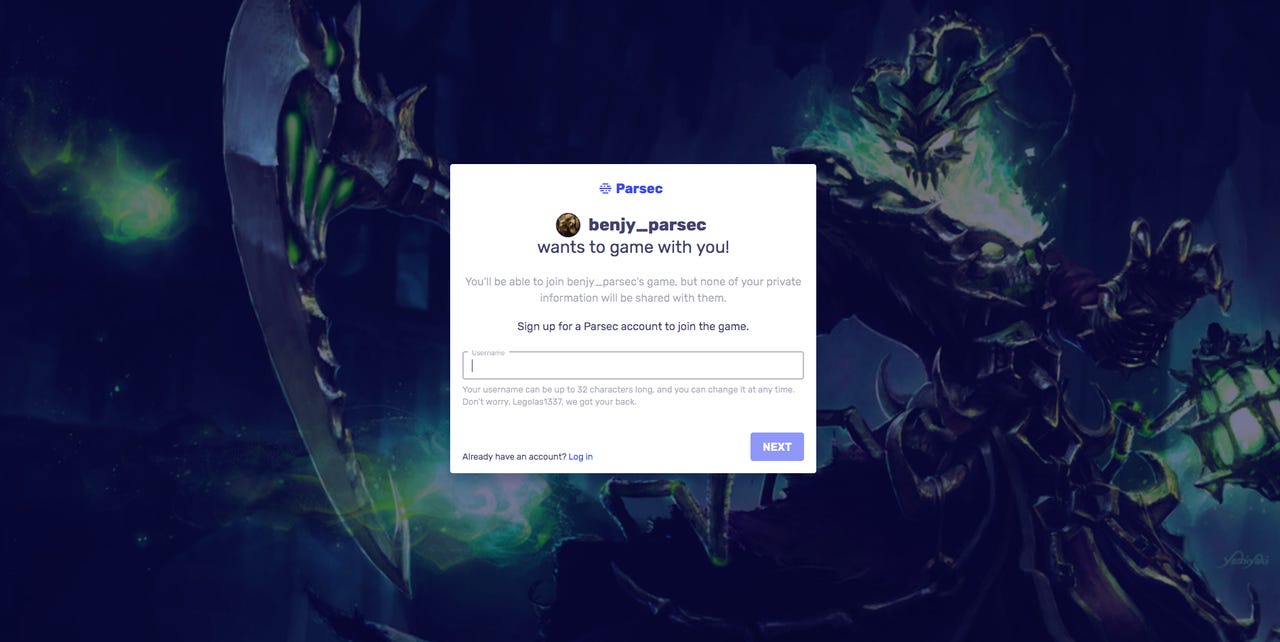Parsec delivers streaming games from the cloud or your PC


Featured
Earlier this month, I wrote about Shadow, a service that is hosting a virtual gaming PC in the cloud. Alas, cloud gaming isn't the right answer to everyone. According to Benjy Boxer, CEO of Parsec, cloud gaming is a good option if you play five to eight hours of games per week. Like other companies in the game-streaming space, Parsec supports cloud access to a virtual PC.
Unlike Shadow, which has brought in all of its own highly tuned equipment via an exclusive partnership with Equinix, Parsec is supporting Amazon Web Services and the company is working with Paperspace, a company that specializes in hosting GPU-accelerated virtual machines in the cloud.
But there are many consumers who are well beyond that gaming time threshold. For them, Parsec offers another option -- buying or building your own gaming rig and accessing it remotely. The company scored a big win at CES 2018 via an announcement that HP would be bundling its software on its Omen gaming PCs. In addition to Windows, its supported clients include the Mac and Linux, even when running on the modest Raspberry Pi. Android is also in the works.
While I was not able to try a configuration running on another home-hosted PC, I recently tried a pre-release of Parsec connected to a cloud PC running Cuphead. The controller responded instantly to controls, making it seem like the machine was playing on the local machine. Alas, that didn't help much in succumbing to a quick demise in the notoriously difficult game styled with 1930s-styled animation and graphics.
Cloud-based streaming game services can charge significant monthly fees (Shadow plans to launch in the US at $34.95 per month) as they seek to justify their value versus buying a high-end gaming PC, In contrast, running Parsec at home doesn't save the expense of a PC with at least a respectable amount of GPU-driven horsepower, However, Parsec itself is free. The company plans to drive revenue via premium services. It says the HP deal was also a revenue-generating transaction.
Unlike Shadow -- which is looking to gaming as a test case for proving the feasibility of complete PC replacement (despite selling its own device) -- Parsec claims it is focused on the gaming opportunity for the foreseeable future. That said, you can use it to remotely access the full desktop much as you would other remote PC control options for productivity or other entertainment endeavors.
Depending on distance and other limitations, Parsec is more likely to deliver better performance when professionally hosted on powerful machines rather than local machines. As Boxer puts it, enabling consumers to host their own remote sessions means a lot more work for them to accommodate a wide range of variables.
But self-hosting Parsec has at least one advantage -- one can enable multiplayer sessions where you virtually "pass the controller" to a remote user as if that person were sitting next to you. This essentially brings a level of online multiplayer support to games that were never designed for it. Boxer says that a number of game companies that don't want to go through the hassle of building true remote multiplayer support are looking at Parsec as an option. Parsec is also building a fair amount of identity infrastructure around its gaming community. While the company does not highlight it as such, it could lead to the development of an Xbox Live-type service and another potential revenue stream.
In general, self-hosted servers have had a tough time in the consumer market. Consider the usage of services such as Dropbox versus niche appliances such as the defunct PogoPlug and Transformer or the little-used remote file-sharing features that let consumers string hard drives off the USB ports of routers.
However, in these early days of PC cloud gaming, the same early adopters who are willing to invest in powerful rigs to run their compute-intensive games at home would likely have little resistance to extending that capability to themselves when away from home. That could provide enough of a beachhead for Parsec to develop a sustainable presence.
PREVIOUS AND RELATED COVERAGE
Shadow wants to deliver your last PC
App of the week: LiquidSky is DaaS for gamers, but it's also great for business
Gaming over the web with minimal lag and high-end processing power? That's what LiquidSky is offering, which means it's great for other intensive tasks too.
LiquidSky: A new paradigm for ultra low latency 3D rendering from a cloud-based VM?
LiquidSky, a new DaaS gaming platform, claims to deliver high performance cloud desktops that are latency-free. If true, users of resource-intensive business software should take notice.